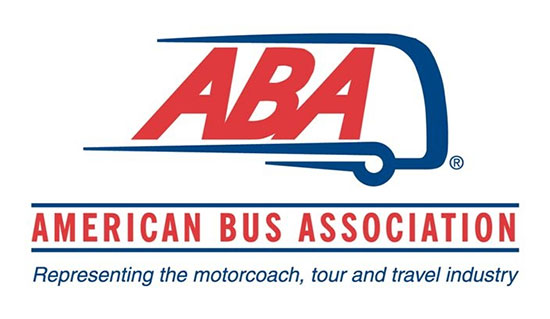“Resilient” and “essential” were terms used to describe the motorcoach industry following the release of the results of the 2024 Motorcoach Census, a report conducted by the American Bus Association Foundation (ABAF) and Tourism Economics. The census offers a detailed snapshot of the motorcoach sector’s size, activity, and service diversity, which is vital to both the travel and commuter markets.

Revealing a positive outlook for 2025, more than half of the surveyed companies indicated plans to acquire additional motorcoaches, which shows a continued investment in fleet growth and modernization.
The Census revealed an increase in both the number of operators and vehicles from the previous year. For instance, the motorcoach industry in the US and Canada consisted of 1,959 companies operating 48,667 motorcoaches in 2024. Furthermore, US-based operators accounted for 1,829 companies and 47,348 motorcoaches, while Canadian operators comprised 130 companies and 1,319 motorcoaches.
Other key findings from the report include:
- The motorcoach industry delivered 40 billion passengers over 1.7 billion miles
- Employment reached 75,859 jobs across the US and Canada
- Small companies (those with fewer than 25 coaches) made up an overwhelming majority of the industry (87.1%)
“Motorcoaches move people safely, efficiently, and sustainably, supporting millions’ travel, tourism, and daily commuting needs. This data affirms our industry’s vital role in America’s transportation ecosystem and its bright future,” said ABAF Director of Research, Policy, and Impact Lew Myers.
In addition to the census, the ABAF also announced first quarter results for the 2025 Motorcoach Builders Survey, which shows industry growth as compared to Q1 2024. According to the survey, participating manufacturers sold a total of 457 motorcoaches, compared to 425 documented at the same time last year. Data reveal that sales of new motorcoaches have increased by 9.5% year over year, with the sale of pre-owned motorcoaches 3.0% lower.
 ABA President & CEO Fred Ferguson
ABA President & CEO Fred Ferguson
“A 10% year-over-year increase in new motorcoach sales is a clear sign that our industry is regaining strength and confidence,” said ABA President & CEO Fred Ferguson. “Operators are reinvesting in their fleets to meet rising demand for group travel. But that momentum is at risk. Proposed tariffs on imported motorcoaches, steel, aluminum, and other critical parts could drive up costs and slow future investment. ABA will continue advocating for policies that support growth for the motorcoach industry.”
While sales of new vehicles have increased, the industry is still down as compared to pre-COVID numbers. According to the survey, Q1 data for 2025 show a 27.7% decrease compared to the same quarter in 2019. However, a comparison of 2024 and 2025 first quarter numbers indicates an improvement of 5.1 percentage points.
This positive news from these studies comes on the heels of another ABAF report, which again shows that motorcoaches are among the most efficient modes of transportation when measuring their impact on the environment. The Motorcoach 2025 Sustainability and Innovation Report, commissioned by the ABAF, in partnership with Oxford Economics, provides a comprehensive look at environmental benefits of motorcoach travel and the sustainability efforts of motorcoach operators and manufacturers.

Key findings from the report include data showing that motorcoaches are the Most Energy-Efficient Mode of Transportation, outperforming all other forms of travel in energy consumption per passenger-mile. Furthermore, coaches emit less carbon dioxide per passenger mile than any other mode, making them the top choice for travelers and policymakers focused on reducing transportation emissions.
“This report recognizes what our industry has long known: motorcoaches are the most energy-efficient, lowest-emission mode of passenger transportation available today,” said Ferguson
He added that coach travel contributed to saving an estimated $2.7 billion in social costs tied to emissions.
“These outcomes aren’t just statistics— they’re the result of decades of innovation, from clean idle engine technology to sustainable manufacturing practices. The motorcoach industry is proving every day that clean, connected travel is not only possible—it’s already here,” he said.
Visit buses.org for more information.
[05.20.25]

